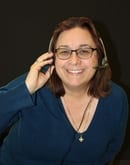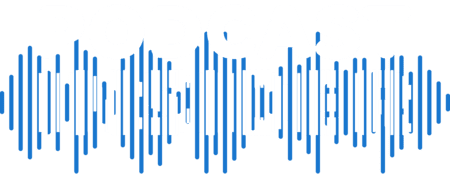This is part two of Building Your Audience with Great Podcast Interviews, read part one here.
 Great podcast interviews usually require some work to find the guests. However, sometimes they find you. After years of podcast productions, Troy Heinritz of The Blacklist Exposed Podcast shares a story of the interview guests who find him.
Great podcast interviews usually require some work to find the guests. However, sometimes they find you. After years of podcast productions, Troy Heinritz of The Blacklist Exposed Podcast shares a story of the interview guests who find him.
“On the Blacklist specifically, we interviewed the stunt coordinator, the music director, the music writer, the makeup director, a few writers. We even did live watch parties at the start of the pandemic with us, the writer of the episode; and an actor, and sometimes the creator Jon would pop in as well.”
Troy’s experience shows that it doesn’t happen overnight. He’d been working his podcast consistently for years before that call came.
When you find those guests, you will want to produce the best possible recording. There are three keys to making your podcast interview succeed.
Prep Your Guest
When you find the person who will bring a new perspective and information to your audience, you need to be prepared for that interview. If you’re talking about a topic with a lot of differing opinions, make sure you understand the topic from all sides. Just asking someone a few yes or no questions is a poor interview. Be ready to challenge them, and/or ask follow up questions.
The key to the great interview isn’t always asking the perfect question. It’s asking it in a way that draws out a story from your guest. The best way to ask a question leads to the other person telling you a story. Stories might be harder to edit, but they rarely need it. Your guest wants to tell you the story so all the usual filler words and digressions will disappear. Their excitement and urgency will show in their voice inflections, as well as their sense of humor.
Do the Podcast Interview Prep
A lot of interviewers don’t prep enough. They’ll read a blurb on the back of the book, or skim through the prepared notes. You can do better!
Watch a few episodes of Hot Ones, a YouTube series where host Sean Evans and his guests eat sequentially hot wings as he asks questions that the guest never expects. His questions take deep dives into his guest’s history and experiences.
Jordan Harbinger is another highly regarded interviewer. He preps extensively by reading books by his guests. By putting in the work, he’s ready to focus on his guests and bring everything he can to his audience.
While you prepare, you will find new ways to address the topic with your guest. The power of Hot Ones is the unique sequence of asking questions while disarming the guest. Trying to answer a question while their mouth is on fire distracts the guest from the pre-scripted answer and they say things they’ve never said anywhere else.
A few years back, the format that everyone copied was the On Fire format. Same questions, time after time, regardless of the topic. Take some time to come up with a twist. Just like we take time to craft a title or headings in our show notes, we podcasters can make a list of dozens of ways to ask the same question – new words, new phrases, new perspectives.
Yes, it’s work, but in the end, you’ll have an interview with content your audience will love and your guest will be happy to promote, all while building your audience.
Do the Screening First
Bad interviews, regardless of the sound quality, aren’t worth your audience’s time. Pristine, perfectly recorded banalities shouldn’t use up your monthly hosting allotment. On the other hand, recordings of bad sound but brilliant information are worthless, too.
By doing a sound test or screening, you can hopefully eliminate both.
Some guests want the questions in advance. If you’re willing to listen to your guest read their answers, sure, send the questions. If you want more spontaneity, give them the topics but not the questions. Remind them that a bad answer can be edited out, but there’s not much you can do to rescue a bad recording. Ask your guest to conform to some standards, such as a quiet room, using headphones, and setting aside an appropriate amount of time. You deserve that kind of respect.
I’ve had to repeat interviews because of “technical difficulties” that were the guest’s fault. The soundcheck can help you prevent them before you’re stuck with unusable recordings.
During the prescreen, have a list of instructions for the guest and questions that you’ll want to have answered before the recording, such as the type of equipment they have and their ability to record the interview on their end.
Remind your guest that the recording will be edited. If they stumble over their words, or say something the wrong way, an easy way to handle the problem is to ask them to stop talking completely for 5 seconds. When you go to the sound file, you’ll see the long, empty spots and know that something just before it needs to be cut.
The Most Important Skill
Be a good listener.
When you listen, you’ll hear a whisper of a story. Follow up on that, not on your next question.
Take notes during your interview but don’t do it on your computer. You don’t want to have to edit out the sounds of your keyboard. The same for a pen or pencil that you write with – take notes, but keep the noise down.
Keep your prepared questions handy, but let the conversation flow. You may ask a question that takes the guest a long time to answer. Sit it out quietly. Don’t put words into their mouths, or give them an idea of how you want the question answered. You can edit that long pause out. Patience gets you the unique stories, the ones they haven’t been told in any other podcast interview. That will encourage them to share your podcast episode with their guests. When you listen to your guests and respect them as people who have stories to tell, they bring you value that you take to your audience.
Troy Heinritz says,
It goes to show you the old sayings are true. Treat everyone with respect, a person is a person no matter how small. That small person role, part, assistant, behind the scenes nobody may just turn out to be a big deal someday, not only for themselves, but for you as well.
That’s how podcast interviews build your audience.
____________
 Kim Krajci, host of Toastmasters 101 podcast, has been podcasting for 7 years and writing since the creation of the stylus and clay tablets. She also teaches speech and debate and works as a social media manager.
Kim Krajci, host of Toastmasters 101 podcast, has been podcasting for 7 years and writing since the creation of the stylus and clay tablets. She also teaches speech and debate and works as a social media manager.





